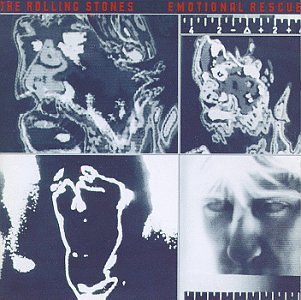
Emotional Rescue is the 15th British and 17th American studio album by English rock band the Rolling Stones, released on 20 June 1980 by Rolling Stones Records. Following the success of their previous album, Some Girls, their biggest hit to date, the Rolling Stones returned to the studio in early 1979 to start writing and recording its follow-up. Full-time members Mick Jagger (vocals), Keith Richards (guitar), Ronnie Wood (guitar), Bill Wyman (bass) and Charlie Watts (drums) were joined by frequent collaborators Ian Stewart (keyboards), Nicky Hopkins (keyboards), Bobby Keys (saxophone) and Sugar Blue (harmonica).

Rock of the Westies is the tenth studio album by English musician Elton John, released on 4 October 1975. The title is a spoonerism on the phrase "West of the Rockies", the album having been recorded at Caribou Ranch in the Rocky Mountains of Colorado.

The Rolling Stones, Now! is the third American studio album by English rock band the Rolling Stones, released on 13 February 1965 by their initial American distributor, London Records. Although it contains two previously unissued songs and an alternative version, the album mostly consists of songs released earlier in the United Kingdom, plus the group's recent single in the United States, "Heart of Stone" backed with "What a Shame". Mick Jagger and Keith Richards wrote four of the songs on the album, with the balance composed by American rhythm and blues and rock and roll artists.

Little Queen is the third studio album by American rock band Heart, released on May 14, 1977, by Portrait Records. The album was recorded and mixed at Kaye-Smith Studios in Seattle, Washington, from February to April 1977. On June 29, 2004, a remastered version of Little Queen was released by Epic Records and Legacy Recordings with two bonus tracks.

Plastic Letters is the second studio album by American rock band Blondie, released in February 1978 by Chrysalis Records. An earlier version with a rearranged track listing was released in Japan in late December 1977.
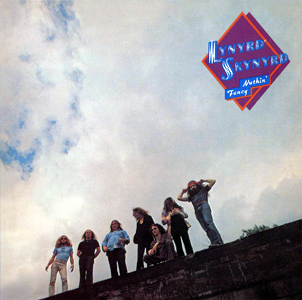
Nuthin' Fancy is the third studio album by the Southern rock band Lynyrd Skynyrd, released in March 1975. It was their first to reach the top 10, peaking at number 9 on the U.S. album chart. It was certified gold on June 27, 1975, and platinum on July 21, 1987, by the RIAA. This was the band's first record with new drummer Artimus Pyle. In late May 1975, guitarist Ed King left the band in the middle of their "Torture Tour." The album is best known for its only single, "Saturday Night Special," an anti-gun song that peaked at #27 on the U.S. Billboard chart.

Coat of Many Colors is the eighth solo studio album by American singer-songwriter Dolly Parton. It was released on October 4, 1971, by RCA Victor. The album was nominated for Album of the Year at the 1972 CMA Awards. It also appeared on Time magazine's list of the 100 Greatest Albums of All Time and at No. 257 on Rolling Stone's 2020 list of the 500 Greatest Albums of All Time. Parton has cited the title track on numerous occasions as her personal favorite of all the songs she has written.

Dreamboat Annie is the debut studio album by American rock band Heart. At the time, the band was based in Vancouver, British Columbia; the album was recorded in Vancouver and first released in Canada by the local label Mushroom Records in September 1975, eventually reaching number 20 on RPM's Top Album chart and earning a double platinum certification. It was released in the United States on February 14, 1976, through the US subsidiary of Mushroom Records in Los Angeles, peaking at number seven on the Billboard 200. It also reached the top 10 in the Netherlands and Australia in early 1977. The album contains three commercially successful singles, two of which, "Crazy on You" and "Magic Man", became staples on North American FM radio. Producer Mike Flicker helped the group to polish their sound and obtain a recording contract with the label.

Magazine is the second studio album by American rock band Heart. It was originally released on April 19, 1977, by Mushroom Records in unfinished form, without the band's permission. A second authorized version of the album was released on April 22, 1978. The album has been certified platinum in both the United States and Canada.

Bébé le Strange is the fifth studio album by American rock band Heart, released on February 14, 1980, by Epic Records. It was the first album without founding member Roger Fisher on lead guitar, who had left the band months prior along with his brother Michael.
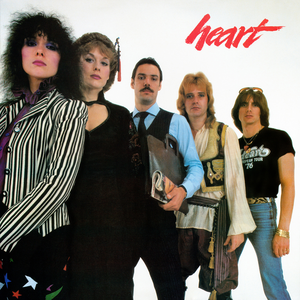
Greatest Hits/Live is a compilation album of greatest hits, live recordings and new tracks by American rock band Heart, released on November 29, 1980, by Epic Records. The album was issued in North America as a double LP. The first disc is a collection of the band's greatest hits, while the second is mostly a live album, although it contains three previously unreleased studio recordings, including a cover of "Tell It Like It Is", released as the first single. The second single released from the album was a live cover of "Unchained Melody".
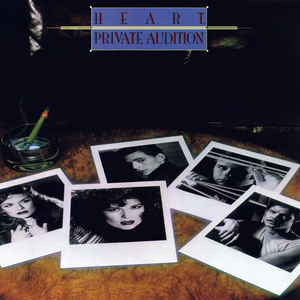
Private Audition is the sixth studio album by American rock band Heart, released on May 20, 1982, by Epic Records. The album reached number 25 on the US Billboard 200, spending 14 weeks on the chart. It spawned the single "This Man Is Mine", which peaked at number 33 on the Billboard Hot 100. It is the last Heart album to feature longtime members Mike Derosier and Steve Fossen, who left after the recording of the album and were replaced by Denny Carmassi and Mark Andes.
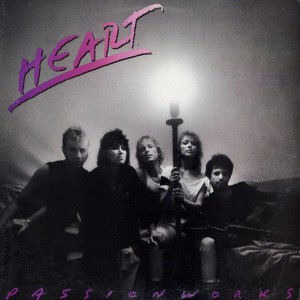
Passionworks is the seventh studio album by American rock band Heart, released on August 20, 1983, by Epic Records. The album marks a shift in musical direction from hard rock and folk to mainstream rock. It is the first Heart album to feature Denny Carmassi and Mark Andes, who had replaced longtime members Mike Derosier and Steve Fossen. Passionworks was the band's final album with Epic Records before their comeback-fueled move to Capitol Records. It reached number 39 on the US Billboard 200. The album's lead single, "How Can I Refuse?", peaked at number 44 on the Billboard Hot 100 and topped the Hot Mainstream Rock Tracks chart for one week. The second single, "Allies", peaked at number 83 on the Billboard Hot 100.

Heart is the eighth studio album by American rock band Heart, released on June 21, 1985, by Capitol Records. The album continued the band's transition into mainstream rock, a genre that yielded the band its greatest commercial success. Marking the band's Capitol Records debut, it became Heart's only album to top the US Billboard 200 to date. The album was eventually certified quintuple platinum by the Recording Industry Association of America (RIAA)—in contrast to Heart's previous two releases, Private Audition and Passionworks, which remain uncertified—proving that adopting a glam metal direction helped resurrect the band.

Bad Animals is the ninth studio album by American rock band Heart, released in May 1987, by Capitol Records. The album continues the mainstream hard rock style from the band's 1985 self-titled release, all while enjoying similar success. It peaked at number two on the US Billboard 200 in August 1987, and at number seven on the UK Charts and was certified triple platinum by the Recording Industry Association of America (RIAA) on June 4, 1992. Internationally, Bad Animals charted within the top five in Canada, Finland, Norway, Sweden, and Switzerland.

The Road Home, a live album released in 1995, is the fourteenth album overall by the rock group Heart. It chronicles a club performance in the "unplugged" style in their home city of Seattle. The setlist contains acoustic versions of many of the band's hits including "Dreamboat Annie", "Alone", "Barracuda".

9 to 5 and Odd Jobs is the twenty-third solo studio album by American entertainer Dolly Parton. It was released on November 17, 1980, by RCA Records. A concept album about working, the album was centered on Parton's hit "9 to 5", which served as the theme song to the film of the same name, and topped both the U.S. country and pop charts. The album's two additional singles—a cover of Mike Settle's "But You Know I Love You" and a reading of "The House of the Rising Sun" – provided further country hits, with "But You Know I Love You" also reaching #1.
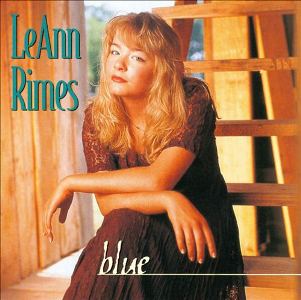
Blue is the debut studio album by American country music singer LeAnn Rimes, released in the United States on July 9, 1996, by Curb Records. It peaked at number three on the US Billboard 200, and number one on the Top Country Albums chart.

The Worst of Jefferson Airplane is the first compilation album from the rock band Jefferson Airplane, released in November 1970 as RCA Victor LSP-4459. The "Worst" in the title is ironic as the album features all of Jefferson Airplane's hit singles up to that point. It peaked at #12 on the Billboard 200 in 1971 and has since gone platinum.

Why Not Me is the debut studio album by American country music duo the Judds. It was released on October 15, 1984, by RCA Nashville and was produced by Brent Maher. Why Not Me was recorded in a traditional acoustic format using only a handful of musicians. It contained a collection of ten tracks, including their previously released single, "Mama He's Crazy." It also included three singles that would become number one hits: the title track, "Girls' Night Out" and "Love Is Alive."




















